If there's one thing science curriculum writers seem to agree on, it's that students are naturally opposed to science study and need an extra push to become interested. Many of the courses available for homeschool students aren't intended to teach science so much as get them to enjoy it and want to pursue further study on their own.
This seems to conflict with some fundamental things we know about kids. For the most part, kids like doing things, they like to explore, they like to figure things out on their own. In the sense that science is largely concerned with doing, exploration, and figuring things out through experimentation and observation, it seems like the perfect school subject for any young student.
Unfortunately, the way science is often presented hides its true nature, and makes it seem like a confusing swampland through which only the nerdiest can make it alive. The truth is that some of the world's greatest scientists were far from nerdy, and that they had to get their hands dirty (and sometimes stare unflinchingly into the Jaws of Death) to learn what they did.
So the effort to rectify this approach to science is welcome and good, but there needs to be content or students will end up with a surface-level knowledge that will soon prove not too serviceable when they hit college or even high school. To those authors trying to provide both a stress-free introduction to science and the proper follow-through, we humbly and gratefully tip our hats.
There are basically two ways to do this. One method, the one we call the "Generalist Approach," stresses the variety of science, offering general overviews of physics, biology, chemistry, etc., and their various subdisciplines, not going too deep but crossing the entire spectrum. The other method, which we call the "Specialist Approach," takes each respective topic and camps there until students have thoroughly explored it, and while elementary, middle school, and even high school texts aren't exhaustive, they provide an excellent knowledge base for further study.
Here is a quick summary of the science curricula we've reviewed, in alphabetical order:
THE GENERALIST APPROACH (broad and shallow)
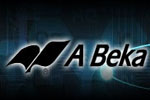 |
A Beka Science Grades K-12
A Beka Science follows a similarly standard approach, in which students read text, answer questions, and take tests. Experimentation and observation are involved, but take a back seat to the data accumulation the authors seem committed to submitting students to. Parents could simply hand students a textbook and let them go at it, though some guidance is suggested as science is an often difficult subject. The texts are colorful and readable, but the ideology is sometimes a bit heavy-handed.
|
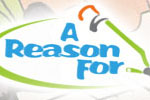 |
A Reason for Science Grades 1-8
If you're looking for a Bible-based science curriculum for elementary and middle school students that is super fun, super colorful, super hands-on, and yet also super educational, this is probably the one you've been looking for. These are real experiments (meaning you'll need to go out of your way to assemble the required materials, or buy the kits directly) imparting real scientific knowledge, and all from a God-honoring perspective. A Reason for Science offers a great foundation and impetus for further study.
|
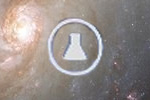 |
AOP Lifepacs: Science Grades K-12
AOP Lifepacs: Science is a workbook approach, offering ten worktexts per year for students to work through on their own. Topics tend to be jumbled, but all the major points are addressed. DVDs offering extra information and help with experiments are available, and are highly recommended for the middle and high school levels. There's nothing superfluous here, just text to read and exercises to complete (along with experiments, if you choose to track down all the necessary supplies).
|
 |
BJU Science Grades 1-12
BJU Science is probably the best textbook curriculum (besides Apologia), though it does require a lot of parent interaction. In the younger grades, students are introduced to a wide variety of information in each text; by grade seven, each book concentrates on a single discipline (physics, chemistry, biology, etc.). At all levels, experimentation forms an important part of the coursework, though many homeschool families opt out of this aspect since the lab materials are often difficult to obtain. This is very much a Christian curriculum, but it's not overbearing in its Creation emphasis and there's lots of real science.
|
 |
CLP Science Grades K-3, 9-12
CLP Science isn't a cohesive course for grades 1-12, and the earlier books are more like Bible studies than anything else. For older students, there's a biology course and an astronomy course; if you want to have your kids work through these texts (both very good and very challenging), you'll need to find another course for late elementary and middle school. The K-3 texts are Bible-based books more designed to show God's glory as manifested throughout His creation than to teach "hard science" as such.
|
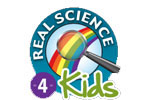 |
Real Science-4-Kids Exploring the Building Blocks of Science Grades K-6
The RS4K Building Blocks series........
|
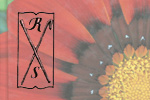 |
Rod & Staff Science Grades 2-10
Rod & Staff Science is a textbook series that covers the fundamentals of each scientific discipline in graduated degrees of complexity, increasing the difficulty of the content grade-by-grade. Original versions were black and white; the new editions have lots of full-color photographs and illustrations, making them engaging and attractive (they're still just as affordable). There is no specific text devoted to biology or physics or any one discipline; instead, all topics are covered in each book, with topics being recycled year-by-year.
|
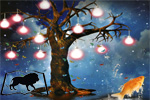 |
Singapore Science Grades K-12
An excellent option from a non-faith based perspective are the Singapore Science books for each grade level. Topics like origins are seldom discussed, the bulk of the course being actual science study, and the times such ideas are brought up can be easily edited or marked for further conversation by the teacher. The texts are colorful and engaging, and the information-packed lessons are a superb foundation.
|
THE SPECIALIST APPROACH (specific and deep)
 |
Answers in Genesis God's Design Grades 4-8
Answers in Genesis: God's Design isn't classically-based per se, but it does retain the experimentation element as well as referring students to outside texts. Each book is full-color, extremely engaging, biblically based, and filled with information and experiments to teach pure science (rather than Creation vs. evolution ideology). You'll need to follow this series up with more in-depth work in high school, but the foundation is excellent and provides a solid foundation for further study.
|
 |
Apologia Science Grades 2-12
For young students, the Young Explorers series by Jeannie Fulbright introduces the main science topics using the biblical days of creation as a starting point. Offering seven courses on astronomy, botany, zoology, human anatomy and chemistry/physics, these combine informational texts, hands-on activities, and notebooking assignments. Fun and educational, this is a favorite for many folks.
The Exploring Creation texts for 7-12 grade students offer readable text, experiments, and multimedia elements in a way parents and kids appreciate. The series is textbook-based, but not too dry; Jay Wile and the other authors are engaging, and deftly take readers through the basics as well as the finer points. With nine courses meant for the six years of junior and senior high, you have a lot of flexibility to pursue scientific interests where they lead.
|
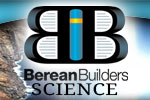 |
Berean Builders Science Grades 2-12
Dr. Jay Wile is famous for his Exploring Creation, published by Apologia Press. He has since sold the company and started Berean Builders Publishing, focusing on science texts for the elementary grades. So far, four of the planned five are published, with the last expected sometime in 2017. These are intriguing, teaching science in chronological order, from creation and the ancients to modern day. The Bereans are noted in the Bible as being noble, or "open-minded," as they searched the scriptures. Wile's focus on searching for the truth is admirable, but causes us a bit of concern in the first volume.
|
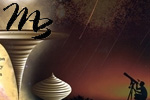 |
By Design Series Grades 9-12
Like many of the science programs we offer, this one isn't a comprehensive curriculum. Unlike many, it's designed for high school students who've already spent serious time with science study. Each book presents a technical investigation of its topic, presenting along with the hard facts evidence that the phenomena described could only be the result of creation, specifically God's creation. Large reference sections, timelines, and illustrations make these good supplements to help older students think about science from a distinctly Christian perspective.
|
 |
Christian Kids Explore Grades 3-8
Christian Kids Explore is the closest thing to a science-based unit study we carry. There is basic information in the guides, but the real content is in the outside investigation students are guided through. Parents will need to interact with their students and do some prep work, but students do a fair amount of the work on their own. Because this series was designed by a homeschool mom frustrated with the lack of good Christian homeschool science curricula, this program addresses many of the problems and weaknesses of other course.
|
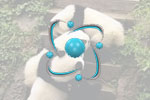 |
Elemental Science Grades K-6
Using the Classical model of grammar, logic, and rhetoric stages, Elemental Science provides a framework for science learning and investigation. The student and teacher books must be used in tandem; student books are basically journals in which kids record what they've learned elsewhere. Assignments and experiments are based on other texts it's up to teachers to procure, and there are tests to make sure kids are retaining what they're learning and investigating. Some of the texts are difficult to find, but they're all high quality and worth the effort.
|
 |
Great Science Adventures Grades K-8
Great Science Adventures is more activity-based than experiment-based, and there isn't a whole lot of solid science instruction in any of the books. Instead, kids make fact-based lapbooks and complete a number of paper projects that offer a great hands-on element to get kids interested in science in the first place. For younger students, a lot of parental guidance is required. Use these as introductions, but for older students (including middle schoolers) you'll want to find more thorough texts to use as a base or supplement.
|
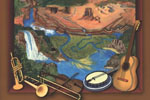 |
Lyrical Learning Science Grades 3-8
Lyrical Learning Science is, in fact, a curriculum; it just happens to be a curriculum in which the bulk of learning is mediated through catchy folk songs about geology, biology, etc. If Weird Al and Bill Nye got together for a science curriculum, it would probably look (and sound) something like this. The great part is that kids actually learn, and receive a solid foundation for further study in high school. If you're into non-traditional learning, this is probably the oddest and most fun program we offer.
|
 |
Master Book Science Grades 4-12
This isn't really a cohesive science curriculum. Master Books, which publishes creationist materials and distibutes for Answers in Genesis, has among their titles a number of excellent books like "Exploring Science" by John Tiner, the "By Design" and "Wonders of Creation" series by various authors, and others. Normally, we'd scatter these by topic, but Master Books has also produced "PLPs" (Parent Lesson Planners) that help connect various titles into a topical unit. These give middle and high school students a way to study topics as diverse as archeology, meterology, pre-med, and more from a Christian perspective.
|
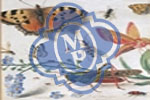 |
Memoria Press Science Grades 3-10
The thing about some of the classical and Charlotte Mason-y science curriculums is that while they are focusing on imparting specific skills, their "scope & sequence" often seems random. That's certainly the case here as Memoria starts off with a book on Astronomy for grade 3, moves on to course on insects for grade 4, birds for fifth, Trees for sixth, and then a more normal set of subjects as it begins to use John Tiner's Exploring Science for 6th & above. Memoria has published quiz, review and test books for each of these. We can't recommend these as a full curriculum long-term, but they're not a bad place to start.
|
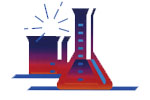 |
Noeo Homeschool Science Grades K-9
Another Classical-style course, Noeo Homeschool Science is much more hands-on than other programs like it. It's also more Charlotte Mason-based than other Classical science programs, drawing heavily on the use of "living books" and narration exercises rather than tests to help reinforce information. Dr. Randy Pritchard is a Christian, but this isn't a "faith-based" curriculum, making it easy to adapt as each family desires.
|
 |
Novare Science Grades K-9
.....
|
 |
Real Science-4-Kids Focus On Science Grades K-12
The RS4K Focus On books........
|
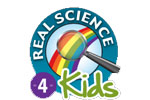 |
Real Science-4-Kids Grades K-9
Real Science-4-Kids is not designed to cover all the bases and offer comprehensive science instruction: it's designed to provide foundational knowledge for further study, and to show how science interacts with, influences, and is influenced by all the other disciplines, including language arts, the humanities, and mathematics. Dr. Ruth Keller doesn't say whether she's a Christian or not, though she is a proponent of "intelligent design." The course, consequently, is neither faith-based nor overtly secular. There are elements of the Classical method here, though Keller's approach is probably more accurately referred to as "integrated."
|
 |
Science Shepherd Grades 5-12
.....
|
SCIENCE SUPPLEMENTS
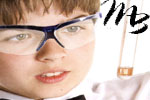 |
Investigate the Possibilities Grades 3-8
Investigate the Possibilities is for late elementary and middle school students, and at three short volumes isn't intended as a full curriculum. Rather, through engaging hands-on activities, it's aimed at getting kids interested in science and pursuing it on their own. Kids keep a journal as they work through the main text, and observation and discussion are shown to be necessary for proper understanding. This makes a great introductory course, or a supplement to get reluctant students more excited.
|
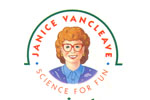 |
Janice VanCleave's Science Grades K-12
A growing number of series are no more than supplements to further study: Janice VanCleave's Science offers plenty in the way of experiments, but none of the texts are sufficient in themselves as science programs (unless you have enough patience to flesh each book out further with your own reading list). This series is excellent nonetheless and has a very long track record of getting kids interested in science through easy-to-complete hands-on projects that impart the kind of information textbooks present in such boring fashion.
|
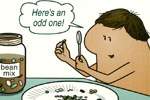 |
TOPS Learning Systems Grades K-12
TOPS Learning Systems isn't a curriculum, and it's not aimed at any specific grade-level (teachers are encouraged to adapt content as needed to make it age-appropriate). There's plenty of excellent information here, all mediated through fun text and lots of hands-on activities, and the books are full of genuine science concepts and facts, but you'll want to supplement with outside reading, or use TOPS to supplement a more traditional course. Locally produced, these texts have been consistently popular for a long time.
|
Most of our science curriculum offerings are faith-based (Christian, specifically), though we do have secular titles as well. We've tried to stay away from blatantly Darwinist programs, as we feel the Darwinian explanation of origins is not only unbiblical, but pernicious in its approach to Christian faith and beliefs. If you're looking for secular science materials, you'll find plenty in our Science Resources category.
We do wonder how much young students (particularly early elementary kids) actually need science. At the same time, if you want them to develop a love of the subject, it's probably best to get them started sooner rather than later. The years when they're active and utterly curious are ideal for providing the fundamentals of science learning and investigation. We'd recommend holding off on the really technical stuff until they're in high school, instead focusing on observation and activity early on.
Ultimately, science is an important subject from a practical and a Christian perspective. Practically, it helps us understand our world, how to behave in it, and how to take care of the environment without letting it become an idol. From a Christian stance, science helps us worship God through understanding and appreciating what He's created: we hope you can find among the curricula we carry one that will help you in both endeavors.
 |
Review by C. Hollis Crossman
C. Hollis Crossman used to be a child. Now he is a husband and father, teaches adult Sunday school in his Presbyterian congregation, and likes weird stuff. He might be a mythical creature, but he's definitely not a centaur. Read more of his reviews here.
|
Did you find this review helpful?